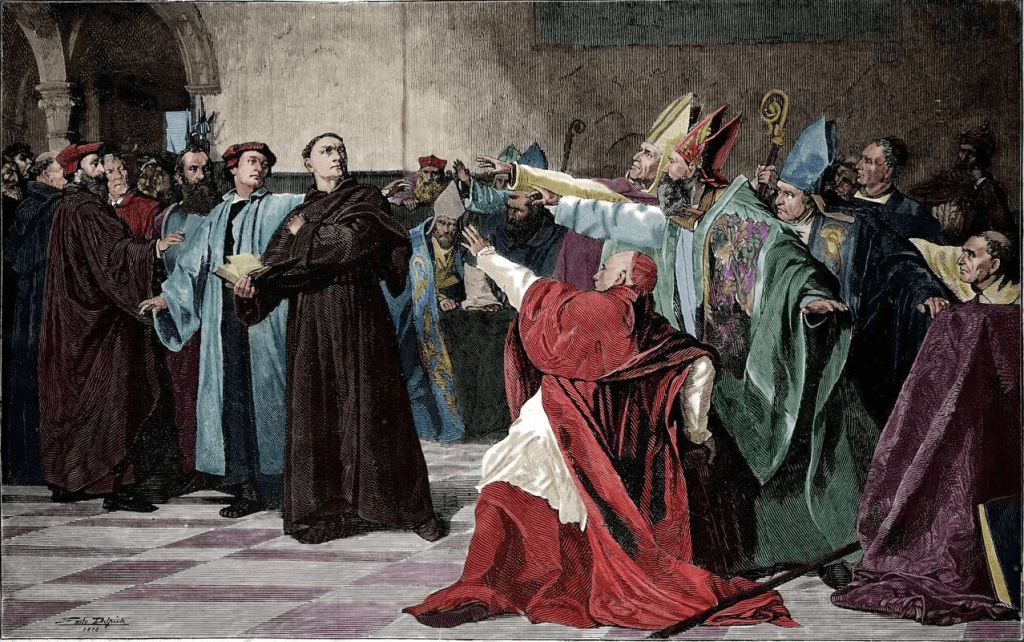On May 26, 1521, something extraordinary happened in the quiet corridors of European power a single man stood his ground against the most powerful institution of the day. Martin Luther, a German monk and theologian, was officially declared a heretic for refusing to recant his writings against the Catholic Church. That decision not only put his life in danger but also lit the fuse for what became one of the most transformative movements in religious history: The Protestant Reformation.
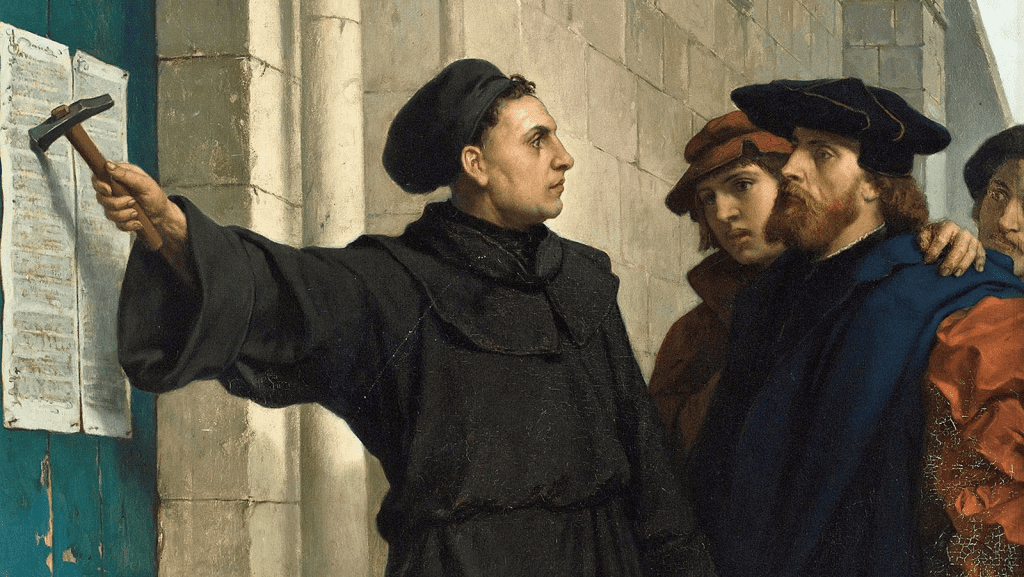
A Monk with a Message
It all began a few years earlier in 1517, when Luther famously nailed his 95 Theses to the door of the Wittenberg Castle Church. The document was a passionate critique of church corruption especially the sale of indulgences, where people could pay money to supposedly reduce punishment for sins. Luther’s theses were not an outright call for rebellion, but rather a plea for reform, transparency, and a return to Biblical teachings.
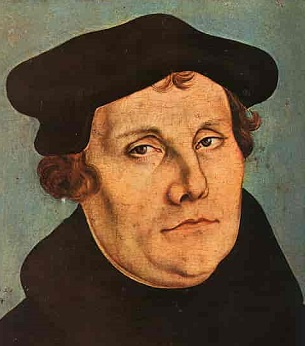
But his words spread quickly. Thanks to the recent invention of the printing press, copies of the theses were distributed all across Europe, stirring debates, inflaming tensions, and inspiring countless followers.
Video:
Martin Luther, the Reformation and the nation | DW Documentary
The Diet of Worms: A Turning Point
In 1521, Luther was summoned to appear before the Diet of Worms, an imperial assembly led by Holy Roman Emperor Charles V. There, he was given one final chance to take back his teachings.
Luther’s reply was clear and courageous:
“Here I stand. I can do no other.”
He refused to retract his writings unless they could be proven wrong by Scripture or reason. With that statement, Luther chose truth over safety, defiance over obedience, and principle over conformity.
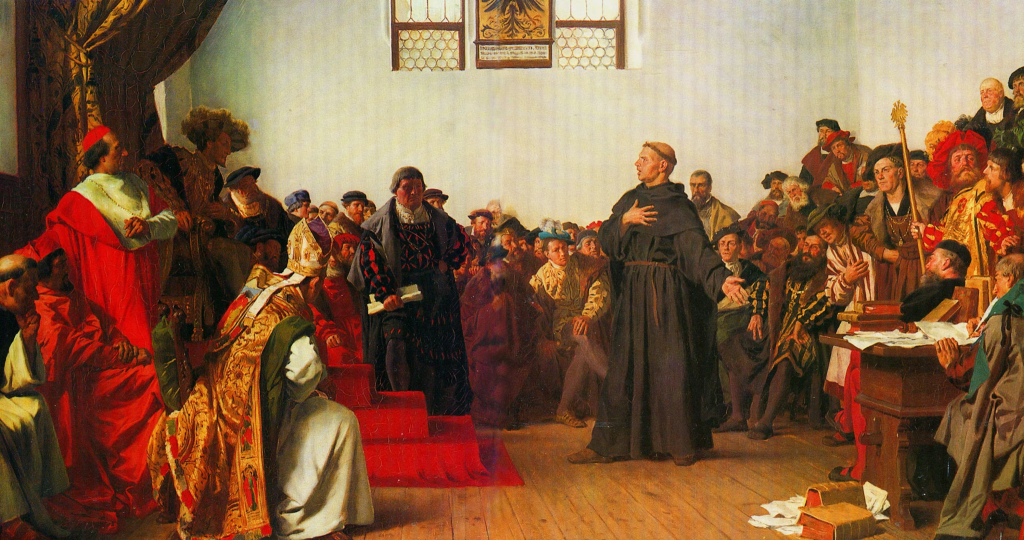
Declared a Heretic, Marked for Death
On May 26, 1521, the Edict of Worms was issued. It declared Luther an outlaw and a heretic, meaning he could be killed on sight without legal consequence. His writings were banned, and anyone found possessing them could face punishment.
But Luther had already won the hearts of many. Instead of being captured or executed, he was secretly whisked away by his allies to Wartburg Castle, where he remained in hiding. While in exile, he didn’t waste time he translated the New Testament into German, making the Bible accessible to ordinary people for the first time in their native tongue.
Video:
Bishop Barron on Martin Luther
The Reformation Gains Momentum
Luther’s resistance inspired a tidal wave of change. What began as a personal protest turned into a widespread call for reform. Across Europe, people began questioning church authority, seeking a more personal connection to faith. New branches of Christianity were born, including Lutheranism, Calvinism, and later, Anglicanism.
This movement didn’t just change religion it reshaped politics, education, literature, and even language. The Protestant Reformation ushered in an age of inquiry, individualism, and the idea that people should have direct access to the divine without needing a priest as an intermediary.
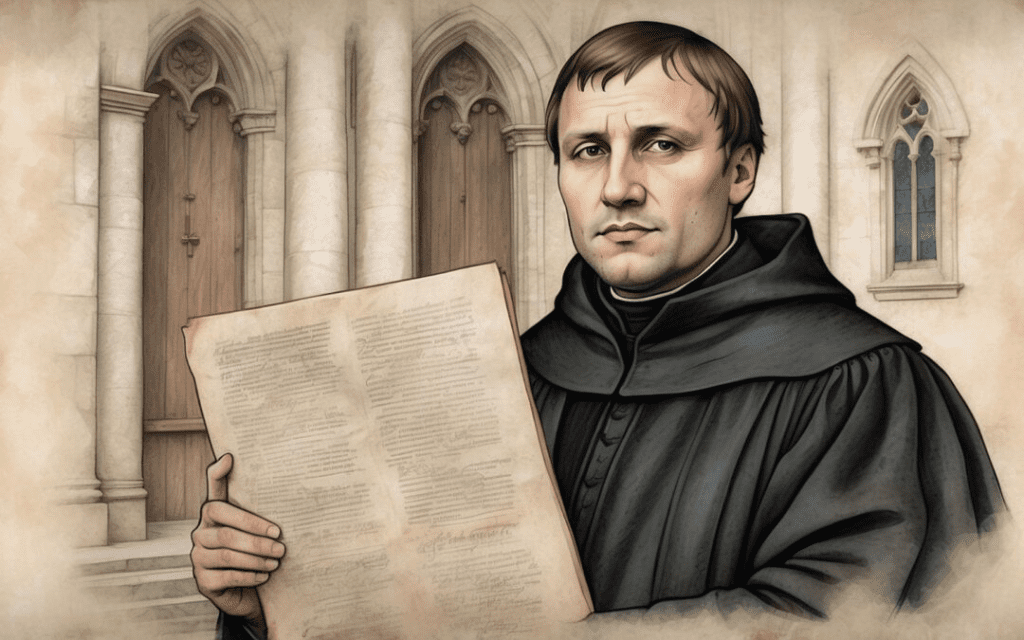
A Legacy That Still Echoes
More than 500 years later, Martin Luther’s stand continues to resonate. His defiance on that fateful day in 1521 didn’t just challenge the Catholic Church it set off a revolution that redefined Europe and laid the groundwork for modern Western thought.
The events of May 26 may not get the same spotlight as other historical moments, but they mark a turning point in the spiritual and cultural journey of the West. Luther’s courage reminds us that one voice, even against overwhelming power, can start a movement that changes the world.
